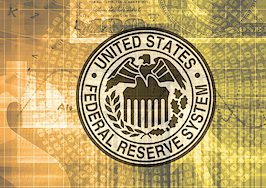- The minutes of the Fed's July 27 meeting are 14 pages of artwork, with not one single hint about what comes next but two glimpses into its background thinking.
- A big part of the central-banking game, maybe the biggest, has been to preserve the Great and Powerful Oz -- the public belief that nothing is beyond our powers. The time for confession now approacheth -- one of the banks is going to ask for help.
- The longer we go without something happening, the bigger the deal when it does.
It is August, but the last few weeks recall the many cartoons of bored buzzards deciding to kill something.
From July 12 through today, the 10-year T-note has traded between 1.50 percent and 1.60 percent (except for the electrifying 29th of July at 1.45 percent). Hence mortgages have been within an inch of 3.50 percent that whole time.

10-year T-note in the last 90 days. ZZZZZzzzzzZZZZZ.
The 10s/mortgages spread is a hair wide at 2 full percent, but nobody wants to be the lucky mortgage trader to buy at 3.375 percent, touched in the second week in July for the first time since 2012. Everybody who bought in 2012 has lost money since, although several did not hold their jobs long enough to enjoy the experience.

Fed-sensitive 2-year T-note, last 90 days. If the Fed is up to something, the best Fed watchers on Earth don’t see it.
The Fed has sent some smoke signals. The minutes of its July 27 meeting are 14 pages of artwork, with not one single hint about what comes next but two glimpses into its background thinking.
First, the minutes open with both long-term thinking and giving increasing emphasis to overseas conditions. That is consistent with other hunches that the Fed may move away from long-held policies (more below).
Second, Fed minutes always separate comments by “participants,” the non-voting presidents of regional Feds, from the “members,” the voting members of the Federal Open Market Committee, which executes policy.

The Atlanta Tracker has been super accurate. If its 3rd quarter forecast holds, and persists into the 4th, the Fed will hike and maybe more than once.
The Chair and Congressionally confirmed governors are always voting members, plus the New York Fed prez, and then three other regionals rotating. Fed-watchers have made a good living lately by ignoring “participants,” — in fact, in assuming that whatever they think, something else will happen. This set of minutes has no divergence. All smokescreen.
Then, one regional prez gave a separate speech, which got a lot of attention. John Williams is president of the San Francisco Fed, following Janet Yellen there and presumed in her camp. But he’s not.
Months ago, he flipped from dove to hawk and has persistently advocated sustained hikes to the 4.00 percent range. He has now backed off toward 3.00 percent, but no one with Yellen is with Williams or even close to it. His speech is significant because he explored alternatives to the Fed’s traditional management of the economy by changing the overnight cost of money.

The ECRI (Economic Cycle Research Institute) may be distorted by the record-setting stock market, but at minimum confirms the Atlanta view.
His rumination applies even more strongly to central banks overseas. All have been at or near or below zero for years. All have executed QE (quantitative easing), which has held together credit markets and held down long-term rates, but none have been able to get an economy running above stall speed (except in the U.S., barely).
And incredible to all central bankers, none has been able to induce inflation. Via mechanisms unknown, and thought impossible before 2009, the more that central banks have pushed extreme measures, the greater the resistance in each economy.
A big part of the central-banking game, maybe the biggest, has been to preserve the Great and Powerful Oz — the public belief that nothing is beyond our powers. The time for confession now approacheth. They’re going to have to ask for help. Williams fiddled with dubious ideas, and many have: for one, raise the inflation target from 2 percent. But, if you can’t get inflation up to 2 percent, who cares what your target is?

One of the big central banks is going to ask for fiscal help, ask its government to spend more by borrowing, and with the simultaneous promise to buy the resulting debt. The bored buzzard. Nobody knows the potential effects, but the risks are plain: a currency could become wallpaper. Long-term bond markets could collapse despite central-bank bond buying. Somebody is going to try.
The Fed does not need to. The ECB is too German-dominated, but a banking crisis could force its hand (Italy … any minute). China in many ways is already doing it — frantic men behind the curtain trying to control everything, more levers than they have hands, a non-convertible yuan buying time. Japan is the likely experimenter.
The physics of boredom, especially in markets: the longer we go without something happening, the bigger the deal when it does.
Lou Barnes is a mortgage broker based in Boulder, Colorado. He can be reached at lbarnes@pmglending.com.











